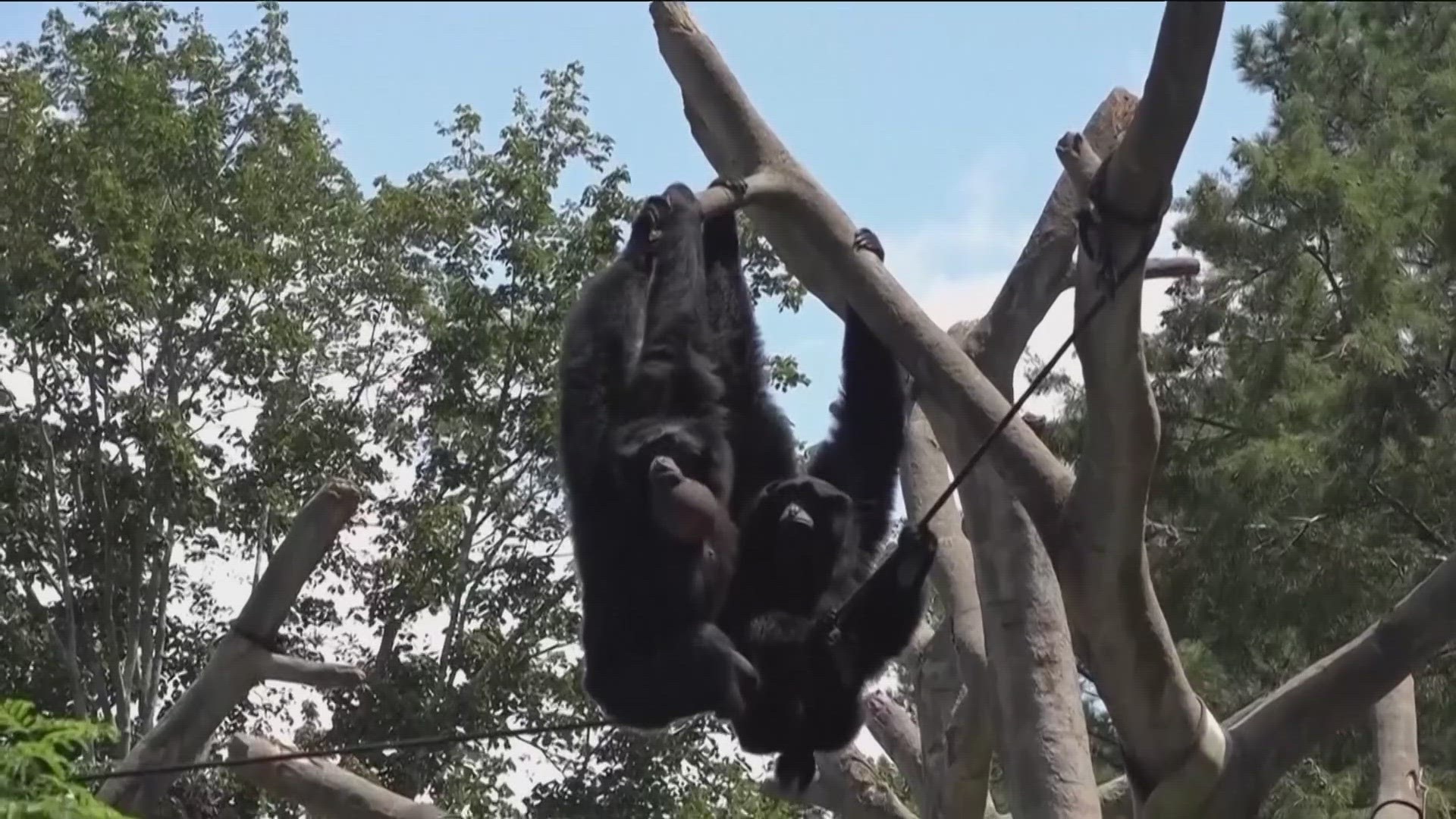SAN DIEGO — The solar eclipse is on April 8 and researchers are looking forward to it, for reasons that may surprise you.
Animals have been known to react strangely during this event.
In San Diego, we'll only see 55% of the total eclipse, so officials with the San Diego Zoo told CBS 8 they don't expect its animals will react any differently. They'll just think it's a cloudy day.
But, that's not the case elsewhere.
At the Fort Worth, Texas Zoo, staff is eager to see what its animals do since they will be able to see the full eclipse.
"What we're kind of thinking might actually happen is that some of the animals are going to think that it's time for their nighttime routines," said Melissa Blair, the assistant mammal curator at the Fort Worth Zoo.
Blair says some of those nighttime routines include moving to their shifting doors or acting as they normally do when dinner is served.
"Some of them could also vocalize, because they're gonna think that it's possibly nighttime. We're kind of looking forward to seeing what they're all going to do, really," said Blair.
Blair says they'll have staff stationed throughout the zoo and behind the scenes to monitor the animals.
They're also asking guests to do the same.
Texas is the first place in the United States where the eclipse will be visible, and it will happen during their regular operating hours.
"We did actually partner with the research team. And we're going to hand out little worksheets. So, then guests can when they come through the park, wherever they're at, whatever exhibit that they're nearby, then we ask them was like, would you mind putting on the sheet what are they doing? What are you seeing? If you get any pictures, you know, video, then we would gladly have it so we can see because we can't be everywhere," said Blair.
Similar studies were done during the last total eclipse in 2017.
At the Riverbanks Zoo in Columbia, South Carolina, researchers observed flamingos gathering around their chicks, gorillas heading to their night time enclosures, galápagos tortoises mating, as well as monkeys and other animals making noises they've never heard.
Even the Komodo dragon responded to the eclipse.
"In general, the Komodo dragon sits still for almost all hours of the day and just in those couple minutes during the eclipse it started running around and had a reaction," said Adam Hartstone-Rose from North Carolina State University.
If you want to see the eclipse, San Diego have a partial view starting at 10:03 am. It will peak at 11:11 a.m. and end by 12:30 p.m.
Make sure you have some special glasses or you can making your own view finder at home.
WATCH RELATED: How to make a solar eclipse view box with household items

